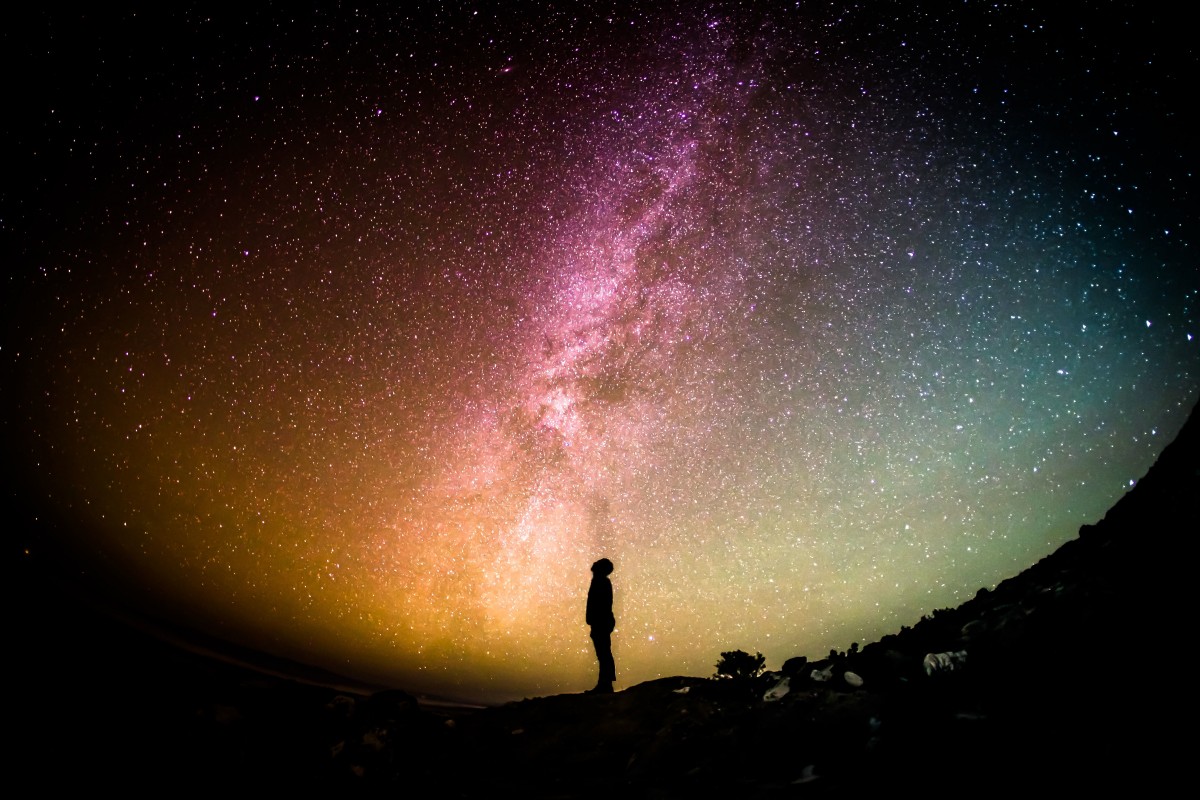Always More
ω
A mind inquisitive will find
while looking out upon the world
that myriads of whys unwind
from raveled webs in queries whirled
by skies above and realms below.
There’s always more than we can know.
If contemplating mysteries
of life’s existence here in space
along with astro-histories
within our cosmical embrace,
the awe one feels will surely show.
There’s always more than we can know.
In famous drama by the Bard,
where Ghost is spotted ‘wondrous strange‘
by castle sentries standing guard,
mid ‘sworn to secrecy’ exchange,
says Hamlet to Horatio,
‘There’s more than you can dream to know
‘on earth in heaven, countless things
in your philosophy not taught.’
(And so begin misfortune’s slings.)
To summarize his gist of thought
in passage ever apropos:
There’s always more than we can know.
Some think that memorizing facts,
despite their changing through the years
as seen in how mankind reacts
when ruled by prejudice and fears,
amounts to understanding, though
there’s always more than we can know.
The gladiola in delight
will bloom as forces lure her on.
Bright stars o’er-sprinkle dark of night
but fade from sight with breaking dawn.
Thus Nature’s cycles come and go.
Yet there’s much more that we can know.
Vast marvels may await our gaze
beyond imagination’s ken
by polishing away the haze
to clear enlightened vision, then
shall fountains of deep wisdom flow…
There’s always more than we can know!
~ Harley White
* * * * * * * * * *
“The important thing is not to stop questioning. Curiosity has its own reason for existence. One cannot help but be in awe when he contemplates the mysteries of eternity, of life, of the marvelous structure of reality. It is enough if one tries merely to comprehend a little of this mystery each day.”
~ Albert Einstein ~ ”Old Man’s Advice to Youth: ‘Never Lose a Holy Curiosity’” LIFE Magazine (2 May 1955) p. 64…
The poem is written in verse, having stanzas with refrain…
Inspiration was derived from various passages from The Tragedy of Hamlet, Prince of Denmark, by William Shakespeare, in particular the following…
There are more things in heaven and earth, Horatio,
Than are dreamt of in your philosophy.
~ William Shakespeare, Hamlet Act 1, scene 5, 159–167
Further inspiration derived from the teachings and writings of Nichiren Daishōnin…
Nam Myōhō Renge Kyō means to devote our lives to and found them on (Nam[u]) the Utterness of the Dharma (Myōhō) [entirety of existence, enlightenment and unenlightenment] permeated by the underlying white lotus flower-like mechanism of the interdependence of cause, concomitancy and effect (Renge) in its whereabouts of the ten [psychological] realms of dharmas [which is every possible psychological wavelength] (Kyō).
The reason that we continually recite Nam Myōhō Renge Kyō

The image is released free of copyrights under Creative Commons (CC0 Public Domain). Attribution is not required…
| Table of Contents |
|
